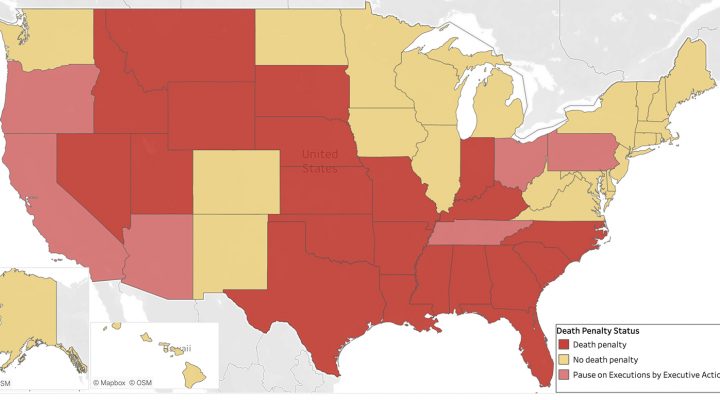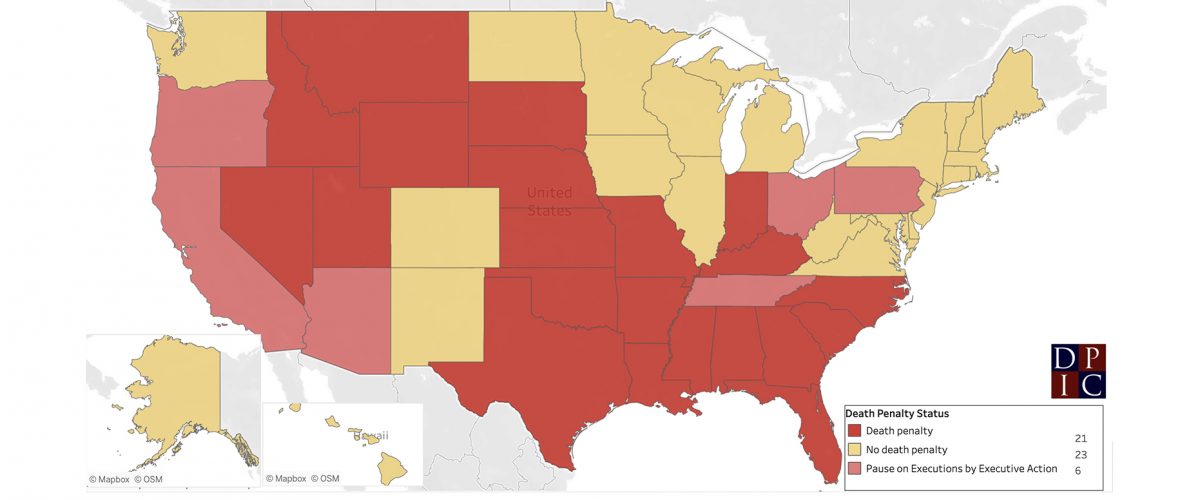Christians opposed to the death penalty but unsure how to effectively challenge it can begin by educating themselves about the practice, civil rights activist Joia Erin Thornton said during a webinar hosted by Equal Justice USA.
As founder and executive director of the Faith Leaders of Color Coalition, one of Thornton’s missions is to empower Black and indigenous clergy to bring their religious and moral authority to bear against capital punishment.
But like the ministers she works with in the coalition, individual Christians and small or large congregations are urgently needed as advocates for restorative justice and death penalty repeal, she said. But that requires being informed about the issue.

Joia Erin Thornton
“First, they need to educate themselves about the laws surrounding the death penalty in their states,” she urged. “You need to know what’s going on on a local level. If you’re not in a state that imposes the death penalty, get to know about what’s going on at the federal level.”
Currently, 27 states have capital punishment laws but six of those — Arizona, Ohio, California, Oregon, Pennsylvania and Tennessee — have moratoriums on executions, according to the Death Penalty Information Center. Several of the 23 states without death penalty laws abolished the practice in recent years, including Washington (2023), Virginia (2021), Colorado (2020) and New Hampshire (2019).
Christians equipped with faith and facts are powerful allies in the movement to eliminate executions in even more states, Thornton said. “Christians can use their voices to urge lawmakers that they do not want the state to kill in their name. They can apply all the tenets of their faith to abolition. They can apply grace, mercy, love, redemption and salvation, and they can understand that the death penalty does not deter crime.”
Thornton was invited to the March 18 “In the Movement” webinar because EJUSA’s mission is to educate Christians about the flaws in the nation’s criminal punishment system and to equip and inspire them into faith-based advocacy, said moderator Sam Health, manager of the organization’s Evangelical Network.
“Our main goal is [to] move people to think about what we can do in response to violence or harm, instead of furthering and continuing that cycle of violence,” he said. “But we also talk about mass incarceration as a fear-based response to worrying about the other, to worrying about discomfort, to worrying about safety and inconvenience.”
Thornton said her organization uses a similar approach with pastors of color because, once on board, their influence typically extends well beyond their pulpits and into statehouses and courthouses.
And their pull goes even further during election seasons, she said. “You have politicians that are eagerly coming to churches to talk about their platforms, and I wanted to embolden pastors to use that power and to help them understand they can develop their own legislative agendas.”
That goes for ministers regardless of the talents they bring to the movement or the size of their congregations, she added. “You may have 40 members, but you may have a powerful voice. You may be a great writer. You can have 4,000 members and we can use you.”
One of the biggest barriers to enlisting pastors and others into the abolition movement is, in many cases, getting them to think critically about capital punishment in the first place, Thornton said. “The death penalty is at the top of the things we talk about in our criminal justice reform. If we don’t address the death penalty, we cannot address anything else. And that’s always what I’m saying when I meet with individuals. But this is a hard sell because until it comes knocking on your door, you’re not connected to it.”
“The death penalty goes unthought of in most places until someone is pressed to talk about it and think about it.”
Heath said he’s witnessed that phenomenon in all sorts of churches and other settings. “When I talk to people on the death penalty, people will often say, ‘That’s the longest conversation I have ever had about the death penalty.’ The death penalty goes unthought of in most places until someone is pressed to talk about it and think about it.”
For her part, Thornton said she’s motivated to continue in the movement because of the raw injustice of it.
“As of just February 2024, we had 196 (death penalty) exonerations. This means that 196 times, there have been cases where new evidence of innocence has been sufficient. But what if we had executed those individuals? Those are just the ones we know about, those innocent people. And as citizens of a free and civilized country, I just can’t sit with that.”
The notoriously inadequate legal representation often provided to the accused in death-penalty trials is another reason to oppose it, she said. “And you have racial bias and the cost of it.”
But it is her relationship with God that provides the strength to forge ahead in the abolition movement, she added. “My faith is the secret sauce to my success. And I have faced many struggles to reach this point. One of my favorite scriptures is Galatians 2:20, and it says, ‘I am crucified with Christ and I no longer live. But Christ lives in me, and the life that I’m now live is by faith in the Son of God who loved me and gave himself for me.’”
Related articles:
Global condemnation falls on Alabama for experimental capital punishment method
Testimony of exonerees is best way to sway opinion on death penalty


